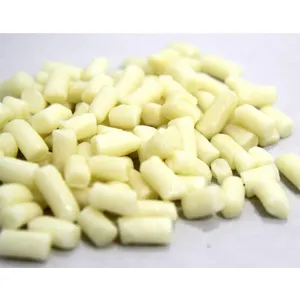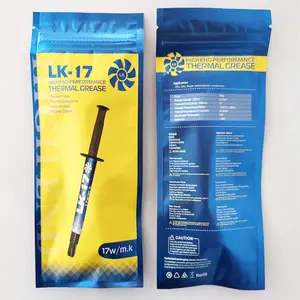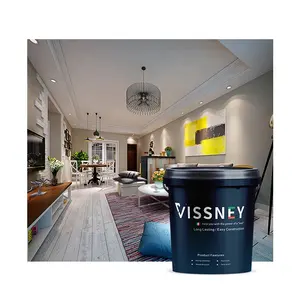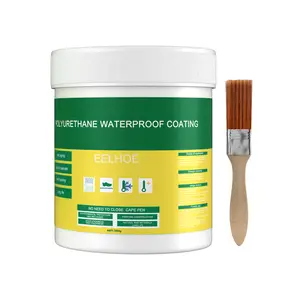Popular in your industry










































































 Ready to Ship
Ready to Ship
















































































































Top categories
About engine block sealant
An engine block sealant is a specialized adhesive used to fill cracks, gaps, or pores in engine blocks and other automotive components. This product is essential for maintaining the integrity of an engine, preventing leaks, and ensuring the smooth operation of vehicles. The role of an engine block sealant is critical in both the repair and assembly of automotive engines, providing a durable and heat-resistant bond that withstands the harsh conditions within an engine compartment.
Types and Variations of Engine Block Sealants
Delving deeper into the types of engine block sealants, we find a spectrum of products each designed to address specific issues within an engine. For instance, RTV silicone sealants are favored for their ability to cure at room temperature, forming a gasket-like seal that is both flexible and strong. On the other hand, acetic silicone sealants are chosen for their rapid curing and excellent adhesion to a wide range of materials, including metal, glass, and plastic. High-temperature variants are specifically formulated to resist the extreme heat of combustion engines, preventing degradation and maintaining a seal even in the most demanding conditions. Liquid gaskets represent a modern innovation in sealant technology, offering a formable, bespoke seal that perfectly matches the engine's contours for superior sealing performance.
Structure and Operation of Engine Block Sealants
The physical structure of an engine block sealant is designed to be both robust and adaptable. A typical sealant consists of a base polymer, such as silicone, which provides the primary sealing function. This is often combined with fillers and additives that enhance properties like heat resistance, adhesion, and curing time. When applied, the sealant flows into the imperfections of the engine surface, creating a seal upon curing. This seal must maintain its integrity despite the engine's movement and heat, which is why the structural composition of the sealant is critical for its performance.
Materials and Properties of Engine Block Sealants
The materials used in engine block sealants are chosen for their exceptional durability and performance under stress. Silicone, a common base material, is renowned for its thermal stability and elasticity. This makes it ideal for withstanding the expansion and contraction of engine components during operation. Other materials, such as polymer blends, are selected for their chemical resistance, ensuring that the sealant does not degrade when exposed to oil, coolant, or fuel. The benefits of these materials include prolonged engine life, reduced maintenance costs, and improved reliability.
Business Usages and Applications
Engine block sealants are indispensable in sectors where engine reliability is paramount. In the automotive industry, they are used during engine assembly to prevent future leaks. In the aerospace sector, the high-temperature resistance of these sealants ensures that aircraft engines maintain their integrity at extreme altitudes. For marine applications, the sealants prevent corrosive seawater from damaging engine components. These products create business value by minimizing downtime and repair costs, thereby enhancing operational efficiency and longevity of engines across various industries.
Functions of Engine Block Sealants
The primary function of an engine block sealant is to establish a hermetic seal that prevents fluid leaks in engine components. It also serves to bond surfaces together, providing structural support to the engine. The sealant acts as a barrier against contaminants, ensuring that the internal environment of the engine remains clean and free from foreign particles that could cause wear and tear.
Features of Engine Block Sealants
Distinctive features of engine block sealants include their resistance to high temperatures, ability to cure without the need for external heat sources, and flexibility to accommodate different engine designs. These unique selling points set them apart from traditional gasket methods, offering a more versatile and reliable solution for engine maintenance and repair.
Benefits of Engine Block Sealants
The use of an engine block sealant brings numerous benefits, such as improved engine performance through the prevention of leaks, extended engine life by protecting against wear, and reduced environmental impact due to less frequent need for repairs and maintenance. These positive outcomes are crucial for businesses looking to optimize their operations and reduce operational costs.
How to Use Engine Block Sealant Effectively
To use an engine block sealant effectively, one must ensure that the surfaces to be sealed are clean and dry. The sealant should be applied in a continuous bead and then spread evenly. After application, it is important to allow the sealant to cure for the specified time before starting the engine.
How to Choose the Right Engine Block Sealant
Selecting the right engine block sealant involves understanding the specific needs of your engine. Consider the maximum temperature the sealant needs to withstand, the types of fluids it will be exposed to, and the materials of the engine components. A high-temperature, oil-resistant silicone sealant is often a good choice for most automotive applications.
How to Clean and Maintain Engine Block Sealant
Cleaning excess engine block sealant requires careful attention to avoid damaging the engine surfaces. Use a specialized solvent that is compatible with the sealant. For maintenance, regularly check the sealed areas for signs of wear or failure and reapply sealant as needed to ensure a continuous, leak-proof seal.
How to Install Engine Block Sealant
Installation of an engine block sealant is straightforward. After cleaning the surface, apply the sealant directly to one of the surfaces to be bonded. Assemble the parts immediately, and tighten to the recommended torque. Allow the sealant to cure fully before starting the engine.
Target Audience and Meeting Needs
The target audience for engine block sealants includes automotive mechanics, engine manufacturers, and maintenance departments across various industries. These products meet the needs of professionals who require a reliable solution for engine assembly and repair, ensuring that engines operate efficiently and without leaks.
What are the key features to look for in an engine block sealant?
When selecting an engine block sealant, key features to look for include thermal stability, chemical resistance, ease of application, and curing time. A sealant that can maintain its integrity at high temperatures and resist automotive fluids will provide a durable seal. Additionally, a product that is easy to apply and cures quickly can significantly reduce downtime, which is crucial in a business setting.
How does engine block sealant contribute to engine longevity?
An engine block sealant contributes to engine longevity by preventing leaks and protecting sensitive components from corrosion and wear. A robust sealant will ensure that the engine operates within its designed parameters, reducing the likelihood of overheating and mechanical failure. This preventive maintenance is key to extending the life of an engine.
Are there environmentally friendly options for engine block sealants?
Yes, there are environmentally friendly options for engine block sealants available on Alibaba.com. These products are formulated to minimize their impact on the environment, often featuring lower volatile organic compound (VOC) levels and being free from harmful chemicals. Choosing these products supports sustainability efforts while still providing the necessary performance for engine maintenance.













































